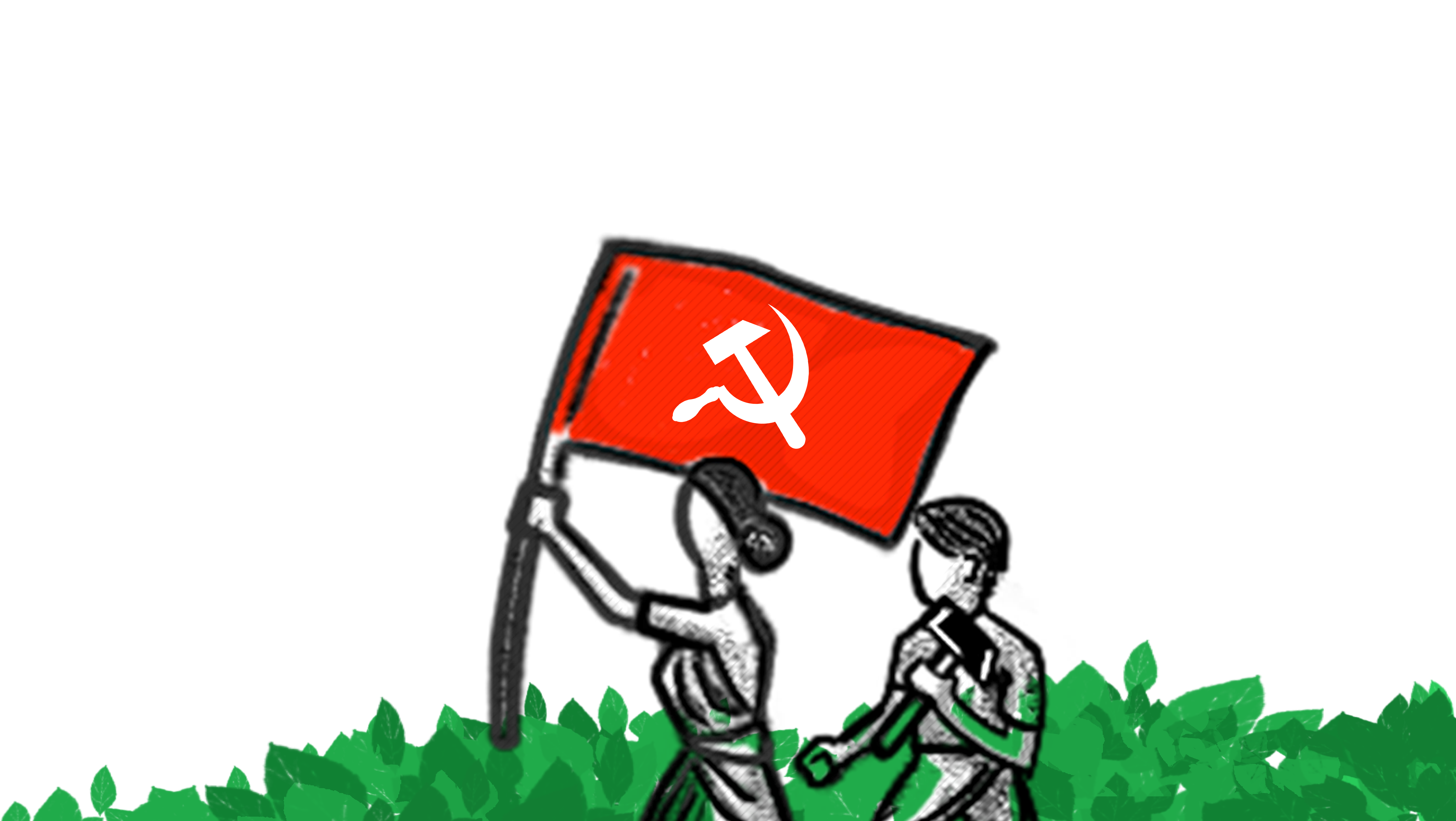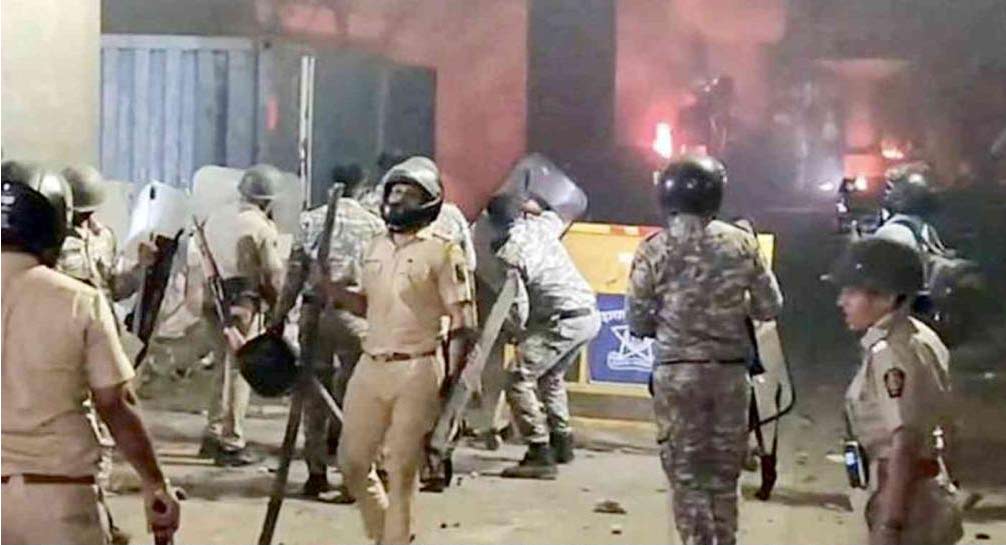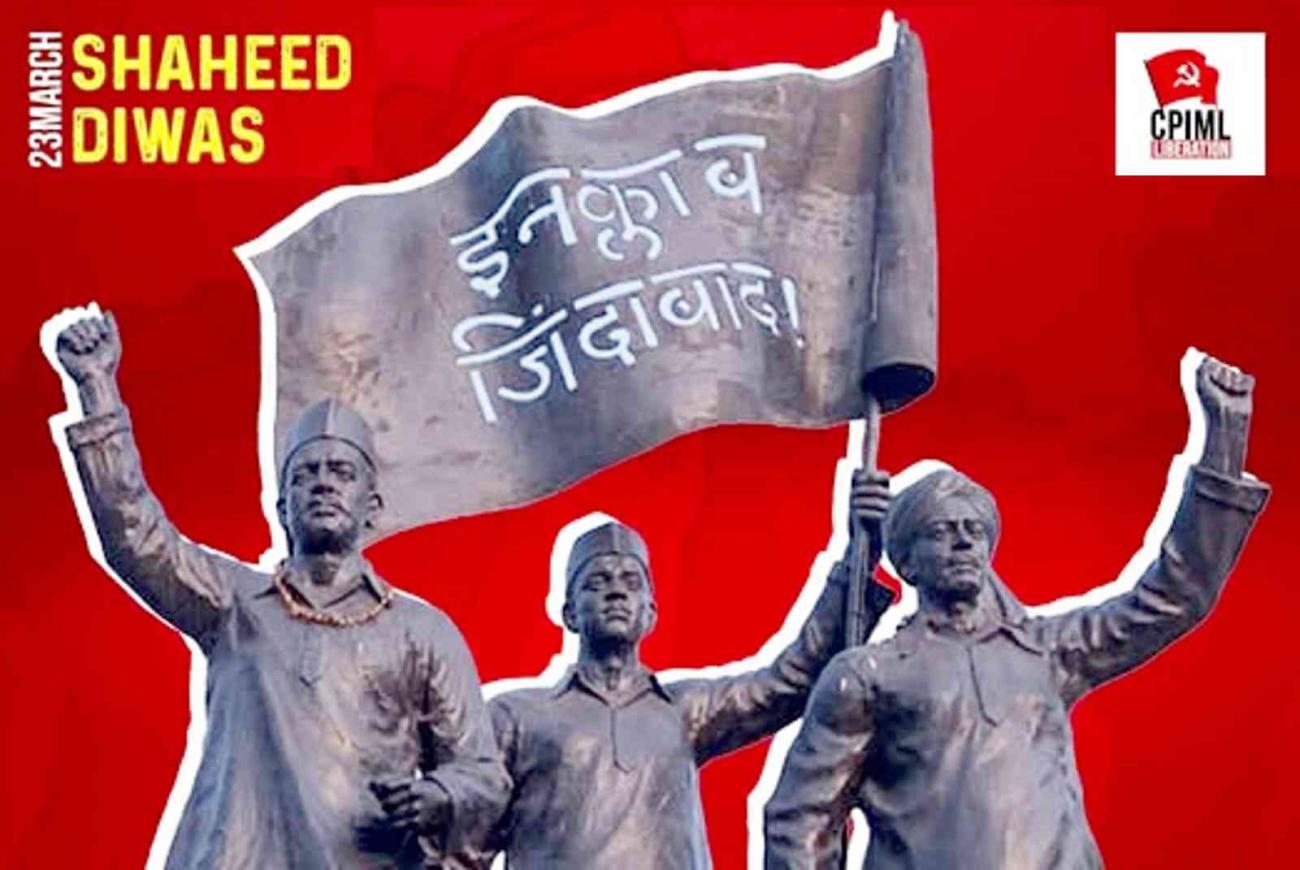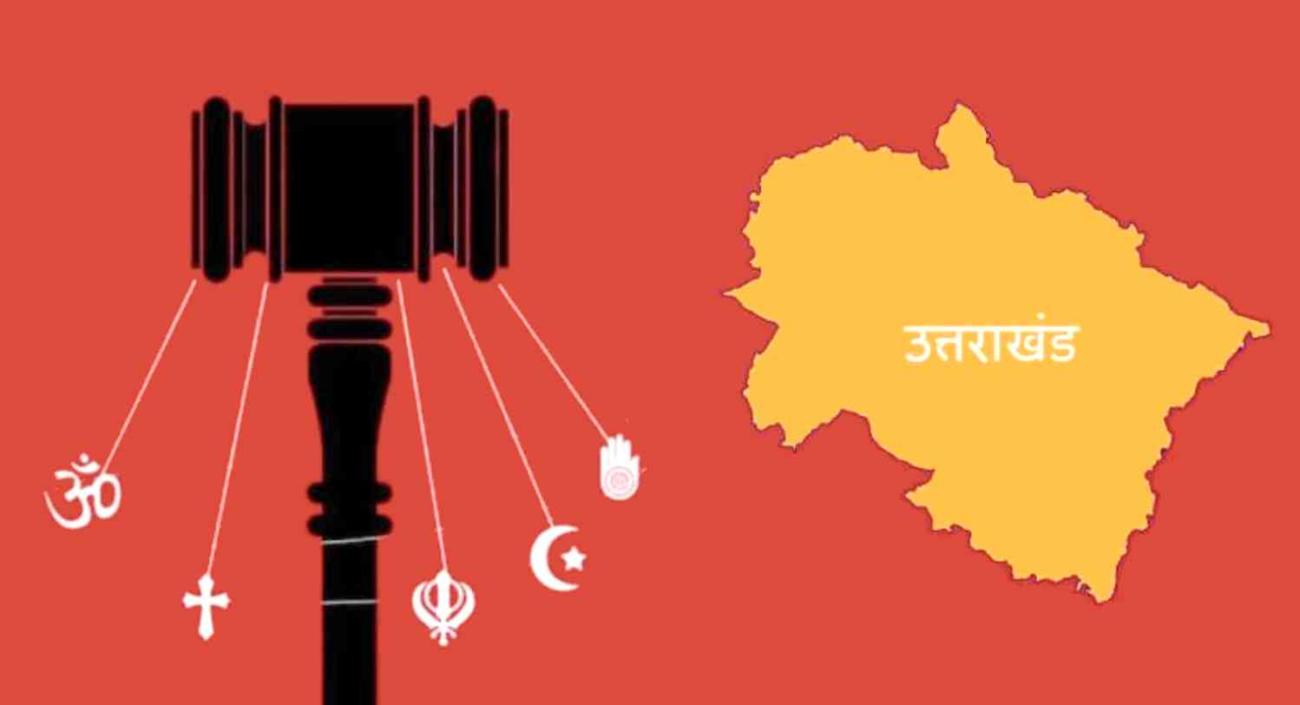Well, as Rizwanur Rahman discovered and we all have discovered through his experience, such a marriage is considered a taboo by the rich and the powerful, a crime which needs to be punished with nothing short of murder. It is perhaps not difficult to understand that industrialist Ashok Todi, whose daughter Priyanka had legally married Rizwanur in the month of August, could never agree to this marriage. But what is really shocking is that the police took it upon itself to do Todis bidding and free Priyanka. And imagine the extent to which the top brass of Kolkata police went in its mission! They repeatedly threatened Rizwanur, even calling him and Priyanka over to the police headquarters and advising them to part ways. In spite of their full knowledge of the marriage having been legally registered on August 18, they filed a case of abduction against Rizwanur. And finally when Rizwanurs battered body was discovered on railway tracks on September 21, the Police Commissioner of Kolkata promptly described his death as an unfortunate case of suicide! In a Press Conference, he said After taking care of the daughter for 26 years, if the family finds one morning that she has left them to start a new life with an unknown youth, parents cannot accept it. The Todi family reacted because Rizwanurs social and financial status did not match theirs; she was a rich girl from a Marwari family while the boy was Muslim and from a middle-class background.� Asked whether the police should have got themselves involved in the parents bid to break up the marriage, Mukherjee declared, Then who will get involved? Do you think the PWD will intervene? This is how we deal with such cases.�
Dont these public statements by the Kolkata Police Commissioner reek of communal and class bias? Dont they go against the right of an adult woman to marry according to her own choice? Why did CPI(M) leaders and their state government remain silent on such offensive communal and anti-woman pronouncements by the Police chief? What happened to CPI(M)s proud claim that Muslims facing persecution by the RSS and communalised police in Gujarat are welcome to settle in West Bengal where the state machinery is secular?
Rizwanur has of course left behind ample evidence of his will to live he gave intimation to the police and to many of his friends regarding the threat to his life. The Police Commissioners role becomes perfectly understandable when one realises that he is also the President of Cricket Association of Bengal; that Todi, apart from being the managing director of Lux Hosieries, is also the kingpin of a betting mafia, and that Todi had facilitated the election of the Police Commissioner Mr. Prasun Mukherjee as the CAB chief. What we see here in action is however not at all a private relation between the top cop and a city business baron, it is a veritable nexus between the police top brass, big moneybags and the underworld.
But there is more to the nexus than mere financial muscle and licensed and unlicensed gunpower what enables the nexus to have a free reign is political blessings from the powers that be. Have we forgotten how Chief Minister Buddhadeb Bhattacherjee had thrown his entire weight behind Mr. Mukherjees candidature (he however lost the first time he contested before being elected unopposed on the second occasion)? Buddhadeb Bhattacharya refused to order a CBI enquiry, reluctantly ordering a CID enquiry which meant that the police would have sat in judgement of themselves! Is it just the governments compulsion to keep the police top brass in good humour? The Todis and Sardas (Govind Sarda, the infamous jute baron, who is a prime accused in the notorious blood kit scam) are of course all esteemed investors in the eyes of the Left Front government and it does not have the will to take any action against them even if they habitually steal the provident fund of their employees.
The Chief Minister of West Bengal Mr. Buddhadev Bhattacharya had to bow ultimately before the unprecedented public outrage and was forced to transfer Kolkata Police Commissioner Prasun Mukherjee, Deputy Commissioner Gyanwant Singh and Ajoy Kumar, Assistant Commissioner Sukanti Chakraborty and Sub. Inspector Krishnendu Das for the role they played in the mysterious death of computer graphics teacher Rizwanur Rahaman after 26 days of the incident. And this decision came just after severe indictment by Kolkata High Court, which ordered for a CBI probe into the whole matter. The CBI enquiry can decide whether Rizwanurs death was suicide or murder; but the Police Commissioners own statements are an open admission and in fact an aggressive ideological defence of the fact that the police did indeed hound Rizwanur to break up his marriage on grounds of class and religion. Transfer is hardly sufficient punishment someone who openly proclaims communal and anti-woman views ought to be dismissed from the police force.
The role of the West Bengal Womens Commission headed by eminent academic Jasodhara Bagchi too was objectionable. The Commission was silent on the Police Commissioners remarks. As late as October 9, they chose to visit Priyanka Todi at her parents home; and later, on October 15, they visited Rizwanurs mother and assured her that they would convey her wish for a CBI enquiry to the Chief Minister. In the statement issued following the visit to Priyanka, they informed the press that Priyanka had said she had returned to her parents of her own accord hearing of her fathers ill health from the police and not under police pressure; she intended to persuade her parents to accept her marriage and then to return to her husband and she failed to understand why her husband had committed suicide; she was traumatised by Rizwanurs death and still loved him; she did not like the media publicity over her husbands death and wanted to move on� and live a normal life. No doubt, for a young woman traumatised by her husbands death, it is difficult to accept the painful possibility that her loving family on whom she now relies for emotional and possibly material support might have had a hand in his death. But Priyanka has not denied that her parents were opposed to her marriage; neither has she denied that it was the police who told her she should visit her father since he was unwell. She has not accused Rizwanur of any ulterior motive in complaining of police harassment, rather she has reaffirmed that she married him out of love and intended to return to the marriage. Rizwanurs own written testimony point to insistent police harassment and above all, the Police Commissioners own statements are an admission and in fact an aggressive ideological defence of the fact that the police did indeed attempt to break up the marriage. Priyankas remarks in no way undermine any of this evidence of gross communal and patriarchal misconduct on part of the police. The Womens Commission is not expected to establish whether or not Rizwanur was murdered; but it is expected to demand action from the state government against public functionaries who act to curb womens rights. Instead, the Womens Commission remained silent on the ideologically objectionable remarks of the police chief and his own admission that he endorsed the police interference in the marriage, and confined itself to faithfully relaying Priyankas words to the press, in a manner that subtly suggests that the media should desist from pursuing the case, that Priyanka absolves the police of the charge of interference and concurs with the police claim that Rizwanurs death was a suicide.
After Nandigram., the response of ruling CPI(M), AIDWA leaders and the WB Womens Commission to the Rizwanur matter are a comment on how the commitment of the state government to corporate heads seriously undermines the CPI(M)s commitment to secularism and womens rights.
box
Kolkata Demands Justice for Rizwan
After the CBI enquiry was ordered and the police officials transferred, the club to which Rizwanur had belonged hung up a poster, with the slogan Commissioner aur Todi Ki Jori, Aawam Ney Tori�. For the past month the whole of Kolkata witnessed unique protests. Candle light vigil�a newly formed organization erected a portrait of Rizowanur besides the pavements of Kolkatas prestigious St. Xaviers college, and lit candles on the footpath. Numerous people from all walks of life came from different corners to St. Xaviers college pavement, not only to light a candle but also to register their protest against the State Govt. by signing petitions for justice. These mellowed candle lights soon created a prairie fire of protest all over Kolkata and even the CM seemed to concede that it was growing public opinion and media coverage that finally forced the govt. to act against the police officers.
Our party and its mass organizations also took a number of initiatives. A team of Kolkata Nagarik Sammanay, a citizens forum led by our party, visited Rizwanurs home and met his mother, brother and other relatives the day after the incident. They also spoke with the members of Tiljala Noble Man Union Club, with which Rizwanur was closely associated. The team was led by veteran party leader A B Chowdhury, Comrade Bibhas Bose and others.
On 3 October, Kolkata Nagarik Samanay & AIPWA jointly organised a protest meeting at Tiljala, near Rizwanurs home. A large number of people attended the meeting and heard the speakers with rapt attention. Rizwanurs maternal and paternal uncle Taj Mohammad and Wadur Rahman, eminent intellectuals like Nabarun Bhattacharya, Bibhas Chakraborty, Meher Engineer, Sujat Bhadra, President of the club mentioned above Moinul Haque, AIPWA leaders, Shukla Sen and Indrani Dutta were the speakers.
On 5 October CPI(ML) organised a March to the Lalbazar thana. Hundreds of party activists participated in the rally which started from Subodh Mallick Square. Wadur Rahman and his neighbours also participated in the rally. A huge police force stopped the rally and arrested 30 comrades, including Comrades Partha Ghsoh, Kalyan Goswami, Jayatu Deshmukh, leaders of WB State Committee. Later they were all released.
On 7 October a delegation team led by Mohd. Salim, All India President of RYA and Moloy Tewari, Member of National Executive of AISA visited Rizwanurs home. A protest meeting was organised near his house, which was attended by people of the Tiljala.





